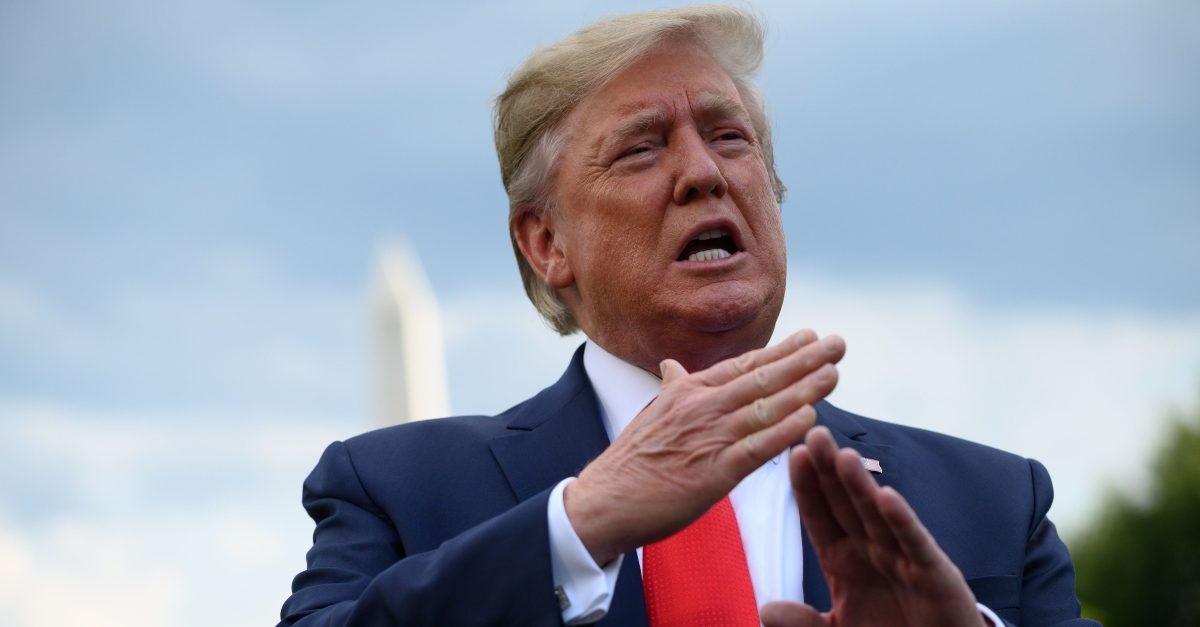
Late last year, the Russian coast guard attacked and seized three Ukrainian ships near the illegally annexed Crimean Peninsula, taking two dozen prisoners and pushing the two nations to the brink of all-out war. Within 24 hours, leaders from around the world — German Chancellor Angela Merkel, the foreign ministers of Germany, a spokesperson for then-British Prime Minister Theresa May, the United Kingdom and Canada, European members of the Security Council (France, Sweden, Poland, the Netherlands and the U.K.) — all condemned Russia’s military aggression and called for de-escalation in the region.
But in the United States, President Donald Trump and Secretary of State Mike Pompeo had little to say about the so-called Kerch Strait incident, the first instance of armed conflict since the 2014 Russian annexation of Crimea. This left many to wonder whether the silence would be viewed as acquiescence to Russian president Vladimir Putin’s increasing combativeness.
When specifically prompted by questions from reporters, President Trump refused to assign blame for the confrontation.
“Not good. We’re not happy about it at all,” Trump said. “We do not like what’s happening either way.”
State Department Foreign Service Officer Christopher J. Anderson, in his opening statement before the House Oversight, Intel and Foreign Affairs Committees on Wednesday, told impeachment investigators, however, that in the wake of the 2018 attack on Ukraine, the State Department drafted a statement rebuking Russia that was subsequently blocked by the White House.
“On November 25, 2018, Russia escalated the conflict further when its forces openly attacked and seized Ukrainian military vessels heading to a Ukrainian port in the Sea of Azov,” Anderson wrote. “While my colleagues at the State Department quickly prepared a statement condemning Russia for its escalation, senior officials in the White House blocked it from being issued.”
Instead of going through with a full-throated statement from the top echelons of the U.S. government, the task of denouncing the attack was left to then-U.S. ambassador to the United Nations Nikki Haley.
“Impeding Ukraine’s lawful transit through the Kerch Strait is a violation under international law. It is an arrogant act that the international community must condemn and will never accept,” Haley said to the UN Security Council following the attack.
Even then-U.S. special envoy to Ukraine Kurt Volker called out Russia’s response to the attack in a tweet claiming the Russian coast guard intentionally rammed the Ukrainian boat as it was “peacefully travelling toward port…and then accused Ukraine of provocation???” Volker has since become a witness to the Ukraine scandal, which sparked House Democrats to pursue an impeachment inquiry against the president.
Anderson worked for Volker for nearly two years, per NPR. The State Department on Dec. 19, 2018 announced sanctions on Russia for its “blatant disregard for international norms,” but the statement did not specifically mention the Kerch Strait incident. Instead, the statement focused on “persons [who] were involved in a wide range of malign activities, including attempts to interfere in the 2016 U.S. election, cyber-enabled attempts to undermine international organizations, and the brazen use of a chemical weapon in an assassination attempt abroad.”
The statement spoke broadly about refusing to tolerate “attempts to interfere in our democratic process” and promising to “side with our allies and partners against Russian subversion and destabilization.”
“We will continue to work with our allies and partners to take collective action in response to irresponsible and malicious acts supported by Russia and its intelligence agencies,” the statement said.
[image via ROBERTO SCHMIDT_AFP_Getty Images]
Have a tip we should know? [email protected]